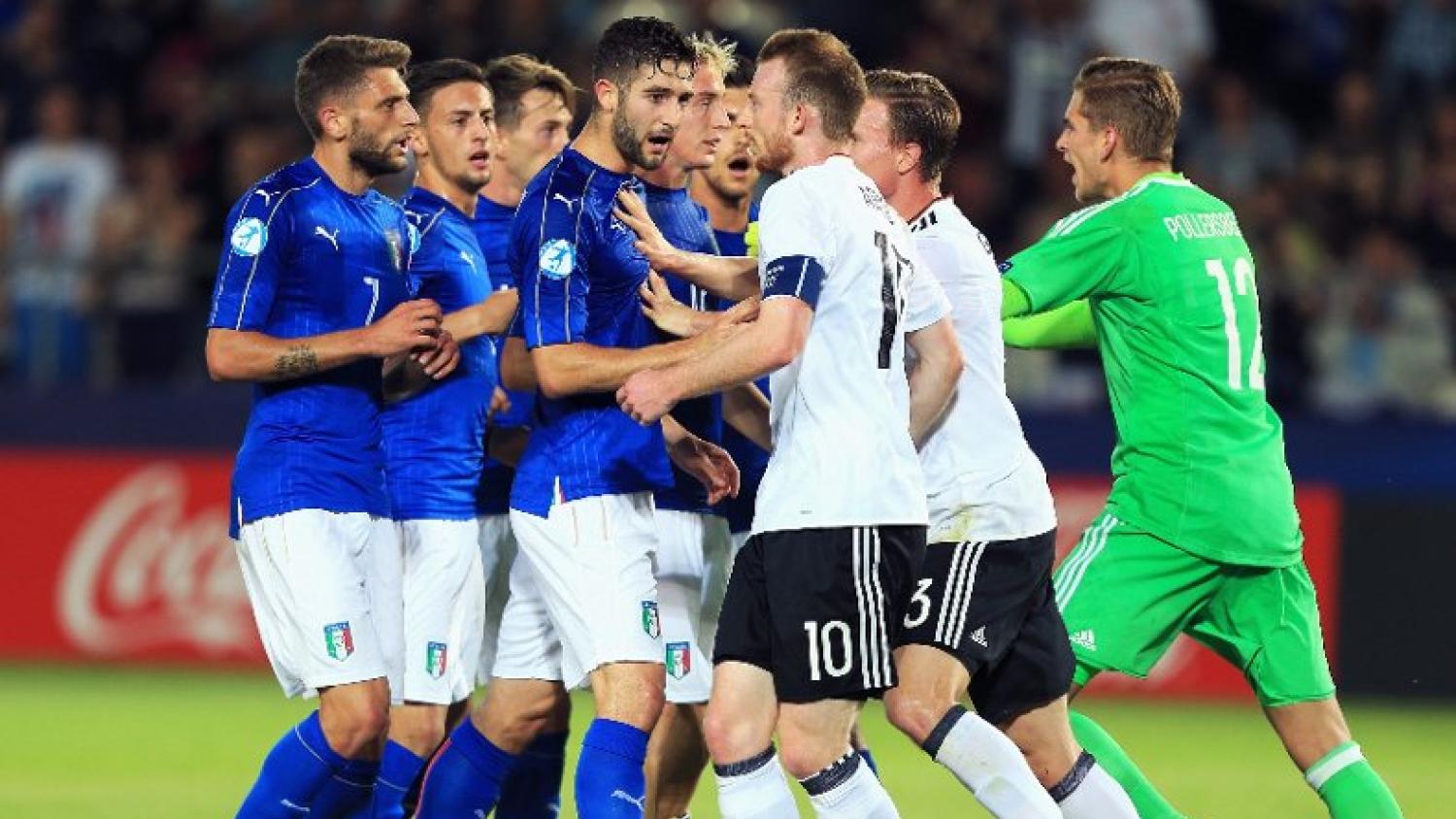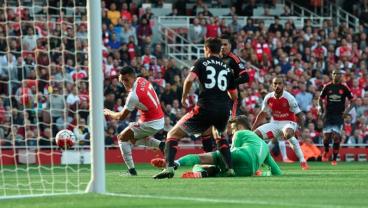Writing about Donnarumma is getting too easy. It’s not only hilarious, but the player, agent, and club are managing to handle events in the worst way possible. It’s also moving at a ridiculous pace.
The "will he/won’t he" saga has long since passed Ross and Rachel levels of intrigue. We have newspaper headlines, press conferences, social media posts, and social media posts that have been retracted, allegedly as the result of a hack. Honestly, it’s too hot to keep track of all of this. But it’s the summer and there’s not much else to get excited about in Italian football.
Except the emergence of a possible biscotto.
Every time Italians play in a tournament, the possibility of a controversial biscuit always arises. It’s an accusation, a dark admittance, and a jovial staple of tournament football. The biscotto (literally, Italian for biscuit) has emerged again, even though the Italians are only actually competing at an Under-21 level. It’s best to get started on these things at a young age.
By this point, it should be clear that we’re not talking about actual biscuits. The biscotto, as a concept, refers to the kind of match which has a result which can be beneficial for both teams. In a tournament group stage, a score draw (for example) might see both teams qualify to the latter stages at the expense of a third team who are playing elsewhere. In situations such as these, the two teams might mutually come to an agreeable result, eliminating the third team as a matter of course. This would be a biscotto match.
The name itself is apparently taken from a type of ice cream. It might be called an ice cream sandwich in America; the type of snack where two biscuit sections are separated by an ice cream filling. The biscotto/biscuit pieces don’t interact with one another but contrive to trap the ice cream between them, squeezing out the filling but remaining intact themselves. It’s a contrived metaphor, for sure, but it’s a particularly Italian (read: culinary) approach to footballing conspiracy.
Perhaps the most famous example is from the 1982 World Cup. It was the final game in Group 2 and West Germany were set to play Austria. Algeria and Chile (the two other teams in the group) had already played, the African side beating the South Americans. Algeria were poised to move into the next stage, a historical achievement for a team from their continent.
However, there was one result which would see West Germany and Austria through together. A West German win would be beneficial for both teams, who had a long and intertwined Teutonic cultural history. The Germans scored in the first ten minutes and the remaining 80 were slow-paced, half-interested and (according to many pundits) disgraceful. This was the game which prompted FIFA to play all final group stage games at the same time. But the biscotto was not to be denied.
Another famous example came from 2004, this time involving the Italians. A European Championship group involving Italy, Denmark, Sweden, and Bulgaria should have seen the Azzurri qualify with ease. As it happened, the Italians put themselves in a position to qualify by beating Bulgaria. There was only one result which would see them eliminated when Denmark and Sweden faced off against one another: a 2-2 draw. Well, as luck would have it, the Danes and the Swedes happened to score two apiece. The two Scandinavian biscuits squeezed the Italian ice cream out of the sandwich.
Since then, there have been many examples. The term biscotto is even applied to the end-of-season league games in which one side has something to gain against comfortably-placed opposition. Playing out a fixture with a mutually agreeable result is always met with cries of ‘Biscotto! Biscotto!’. Sometimes it’s humorous, sometimes it’s bitter. It’s far from uncommon.
So why are we talking about this? Well, that same Italian side whose goalkeeper has been making headlines have found themselves in a biscotto-friendly position. After an opening victory against Denmark, the Italians eased off the gas and contrived to lose 3-1 to the Czech Republic. Murmurs of a distracted goalkeeper swirled through the press, for sure, but the result put the Italians in an awkward position. Their final game was against Germany, who had already won both of their matches.
In essence, a win for Italy would see both teams through to the next round. A draw or a loss and Italy would be relying on the other result. For Germany, the benefit came in being beaten. Rather than having to face Spain in the next round, they would come up against an (inferior) England side. So, the idea of an Italian win seemed to suit both sides.
This was already a second-string Germany against Italy. With the ridiculous strength-in-depth the Germans possess, they were able to send many eligible players to the Confederations Cup instead. Added to that, the German manager made a number of changes, including changes to the goalkeeper and defence. Italy fielded their strongest side, with Chiesa now a starter. But they still managed to make hard work of the game.
To say this was anything like the West Germany and Austria game would be disingenuous. Both teams started like they wanted to win. Serge Gnabry, recently signed for Bayern Munich, was one of the liveliest German players and always seemed a threat. For Italy, offsides and a proclivity for yellow card seemed to jeopardise their involvement in the European Championships. Finally, the breakthrough came with a distinctly Fiorentina flavour. Chiesa made a tackle deep in the German third, which eventually fell to Bernardeschi, who slotted the ball past the German keeper.
Elsewhere, the Czechs were threatening to undermine the entire biscotto affair. Here, too, there was a hint of the Viola. Kenneth Zohore, formerly of Florentine pastures, managed to score two, taking Denmark into a 2-1 halftime lead. The match ended 4-2 to Denmark, rendering biscotto accusations somewhat redundant.
But then we get to the final ten minutes of the game between Germany and Italy. As the score from the other game filtered through to the crowd, the coaches, and the managers, there was a notable easing off in pressure. The closing stages of the game, with Italy leading, were barely watchable. It was walking football, strolling around and stroking the ball back and forth with nary an intention to get anything done.
The game finished and both teams qualified. Germany got their easier game against England, Italy managed to stay in the tournament. Had the Czech’s not lost so spectacularly, they would certainly have cause to be annoyed.
Thankfully, it’s a youth tournament. Not too many people are watching and the front pages in Italy are still being taken up by Donnarumma stories. The possible Under-21 biscotto is barely mentioned. Now, Italy has to face Spain. Given the frankly ridiculous talent at Spain’s disposal, the biscotto might well crumble in the semi-final and Italy might get their comeuppance yet. It would certainly suit the Czechs.





